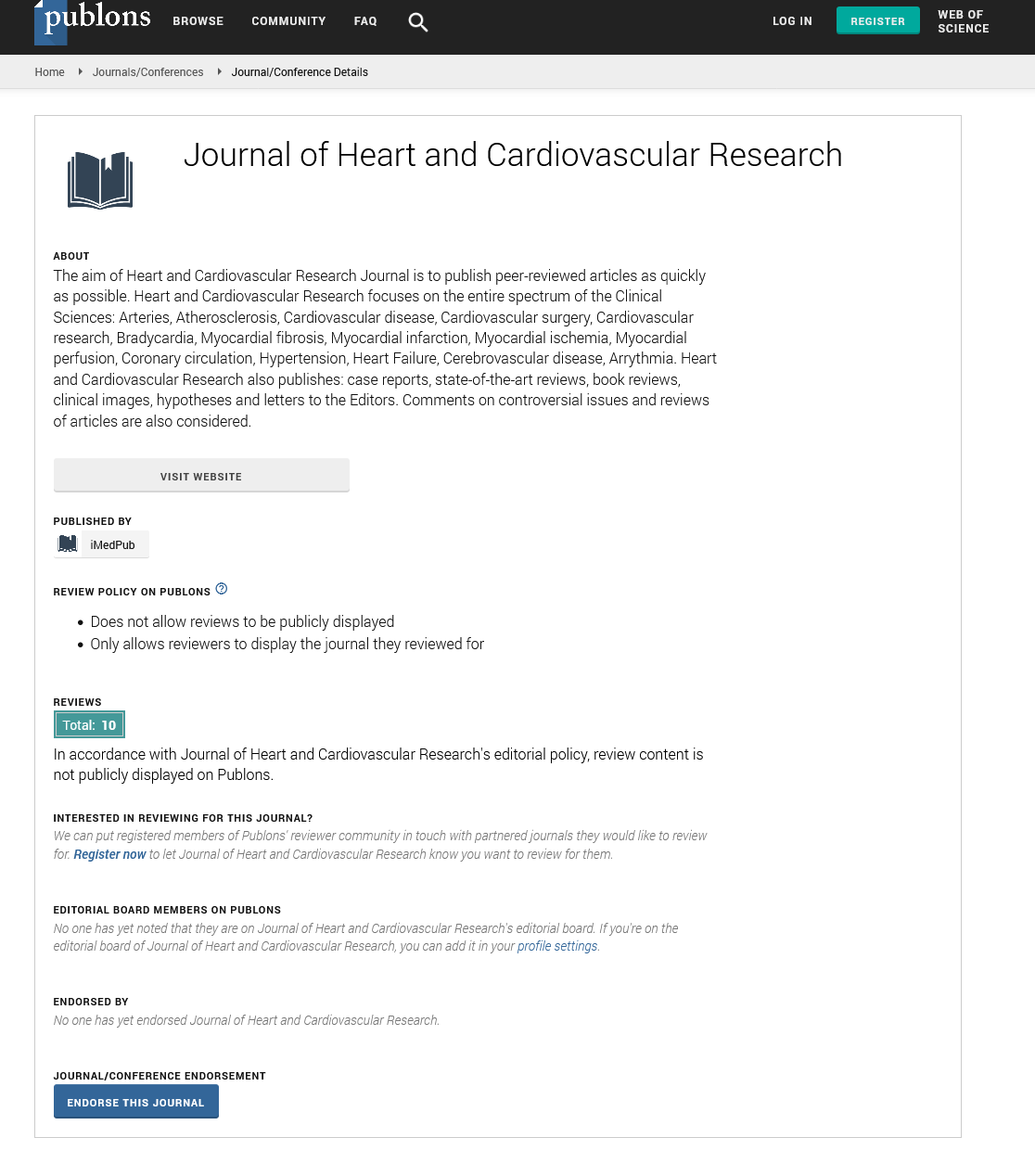ISSN : ISSN: 2576-1455
Journal of Heart and Cardiovascular Research
Abstract
Aspirin Resistance in Subjects with Premature Coronary Artery Disease in Relation to Abdominal Fat and Adipocytokines
Objective: The objective of this study was to evaluate aspirin resistance in young men with atherosclerotic cardiovascular disease (ASCVD) and in relation to abdominal fat by body composition and adipocyte hormones.
Methods: Forty subjects with coronary artery diseases (CAD), scheduled for left heart for coronary vascular evaluation were enrolled in this observational study from the outpatient clinic of the Department of Cardiology at Overton Brooks Veterans health Administration Medical Center between 2007 and 2008. All study subjects were on aspirin at a dose of 81mg daily and had history of coronary artery disease. Aspirin response was measured by the levels of urinary 11-dehydro-thromboxane beta (11DhTx2), using an enzyme immunoassay kit.
Results: Approximately 53% of the patients were resistant to aspirin. Levels of 11DhTx2/cre correlated with insulin levels (r=0.51; p=0.0008), insulin resistance (r=0.46; p=0.0036), HbA1C(r=0.50; p<0.01), visfatin levels (r=0.30; p=0.05), levels of IL-6(r=0.43; p=0.005) and with percentage of abdominal fat (r=0.41; p<0.01).
Conclusion: Aspirin resistance is common on an 81 mg daily dose and is to related abdominal fat, insulin resistance and IL-6. Subjects with abdominal fat may need to be evaluated for adequacy of aspirin response.
Author(s): Subhashini Yaturu* and Shaker Moussa
Abstract | Full-Text | PDF
Share This Article
Google Scholar citation report
Citations : 34
Journal of Heart and Cardiovascular Research received 34 citations as per Google Scholar report
Journal of Heart and Cardiovascular Research peer review process verified at publons
Abstracted/Indexed in
- Google Scholar
- Sherpa Romeo
- China National Knowledge Infrastructure (CNKI)
- Publons
Open Access Journals
- Aquaculture & Veterinary Science
- Chemistry & Chemical Sciences
- Clinical Sciences
- Engineering
- General Science
- Genetics & Molecular Biology
- Health Care & Nursing
- Immunology & Microbiology
- Materials Science
- Mathematics & Physics
- Medical Sciences
- Neurology & Psychiatry
- Oncology & Cancer Science
- Pharmaceutical Sciences
